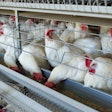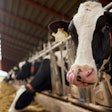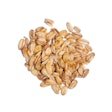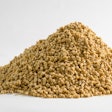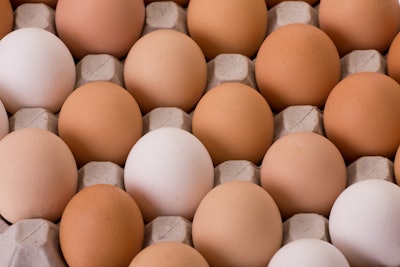
A simple supplement to layer diets not only boosts eggshell production and skeletal health in hens, but it can also help reverse the growing prevalence of vitamin D deficiency in people.
“Eggs are already a highly nutrient dense food, and they are the most cost-effective method to provide essential protein and other nutrients to our diets,” explained Mike Persia, a cooperative extension specialist and the John W. Hancock Professor of Poultry Nutrition and Management in the School of Animal Sciences in the College of Agriculture and Life Sciences at Virginia Tech University.
“With that idea as a starting point, my team considered that the vitamin D already used in poultry production was resulting in an increase in the vitamin D naturally found in an egg. Therefore, the question became how much vitamin D we can safely provide through supplementation to a laying hen, and how much of this will the hen transfer to the egg itself.”
The vitamin D deficiency crisis
With nearly half the global population at risk of a vitamin D deficiency, the crisis is real. The vitamin is essential to bone health and is naturally created within the body through exposure to sunshine.
““In modern times, we have moved inside, because of developments like desk jobs, video games, and air conditioning. We have taken steps to avoid skin cancer, by doing things like wearing hats and shirts, seeking shade and using sunscreen,” Persia said.
A lack of vitamin D is linked to problems with bone growth and maintenance in people, as well as muscle weakness, fatigue and depression. Some studies have even found a connection between vitamin D deficiency and cancer, cardiovascular disease, diabetes and autoimmune diseases.
“As a result, we have reduced our ability to naturally produce vitamin D. Thus, we need to get more vitamin D from our diets now,” he added.
Eggs are a natural solution
According to U.S. Department of Agriculture (USDA) labelling, one two-egg omelet provides 22% of the recommended daily allowance of vitamin D. An enriched egg could provide more of the essential vitamin, adding to the list of health benefits eggs provide.
As the days get shorter and it gets harder to find sunshine on these winter days, it’s clearly time to add more eggs to our diets!












